Skroutz Buyers Protection
Εκδοχές του νόμου, Kant, Sade, KafkaCode: 335005
- Author: Μυρτώ Ρήγου
- Publisher: Plethron
- Μορφή: Soft Cover
- Έτος έκδοσης: 2011
- Αριθμός σελίδων: 476
- Κωδικός ISBN-13: 9789603482192
- Διαστάσεις: 21×14
Μυρτώ Ρήγου


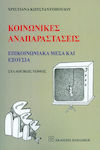

Political Books
Πολιτική επιστήμη, Διακλαδική και συγχρονική διερεύνηση της πολιτικής πράξης, Πολτική θεωρία: Αξιακές επιλογές και προσδοκίες
Ad from BooklibertyAdded




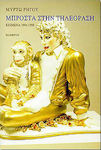
Similar products
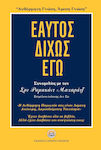
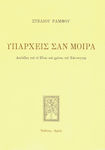
Philosophy Books
Υπάρχεις σαν μοίρα, Διαλέξεις για το "Είναι και χρόνος" του Χάιντεγγερ
Ad from AllaboutofficeAdded

 Top rated
Top rated Top rated
Top rated
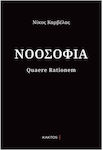



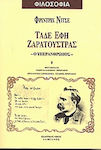
All shops
Prices are calculated for:Germany, Other Payment Options
- 19,24 €
- 19,50 €
- 18,20 €
Description
By analyzing the versions of the law, that is, its divisions and contradictions, this work refers to three protagonists of the law: Kant, Sade, and Kafka.
Kant introduces the concept of law as pure form and the concept of morality as a property of rational beings to act according to the laws. When Kant establishes the law, Kantian philosophy is not limited to the nature of ethics but to the universality of the law.
Sade enters with his work - this "antisurgical philosophy," as his peculiar literature is characterized - into the sphere of the law, introducing a fundamental contradiction: the law establishes the dissolution of the rules of Reason through the very regulatory Reason.
Kafka parodies the law with his work and highlights its versions: first in "The Trial," connecting, like Kant, the law with the form of desire, and then in his novella "In the Penal Colony," linking, like Sade, the law with pleasure.
Therefore, the versions of the law in modernity emerge in at least three cases:
- when the law is grounded in itself (Kantian formalism).
- when the law is subordinated to nature, which, attached to evil, defines a distorted human behavior (sadistic brutality).
- when the law is disassembled and the randomness of its assembly becomes evident (Kafkaesque irony).
Specifications
- Subtitle
- Kant, Sade, Kafka
- Format
- Soft Cover
- Number of Pages
- 476
- Publication Date
- 2011
- Dimensions
- 21x14 cm
Important information
Specifications are collected from official manufacturer websites. Please verify the specifications before proceeding with your final purchase. If you notice any problem you can report it here.

















































